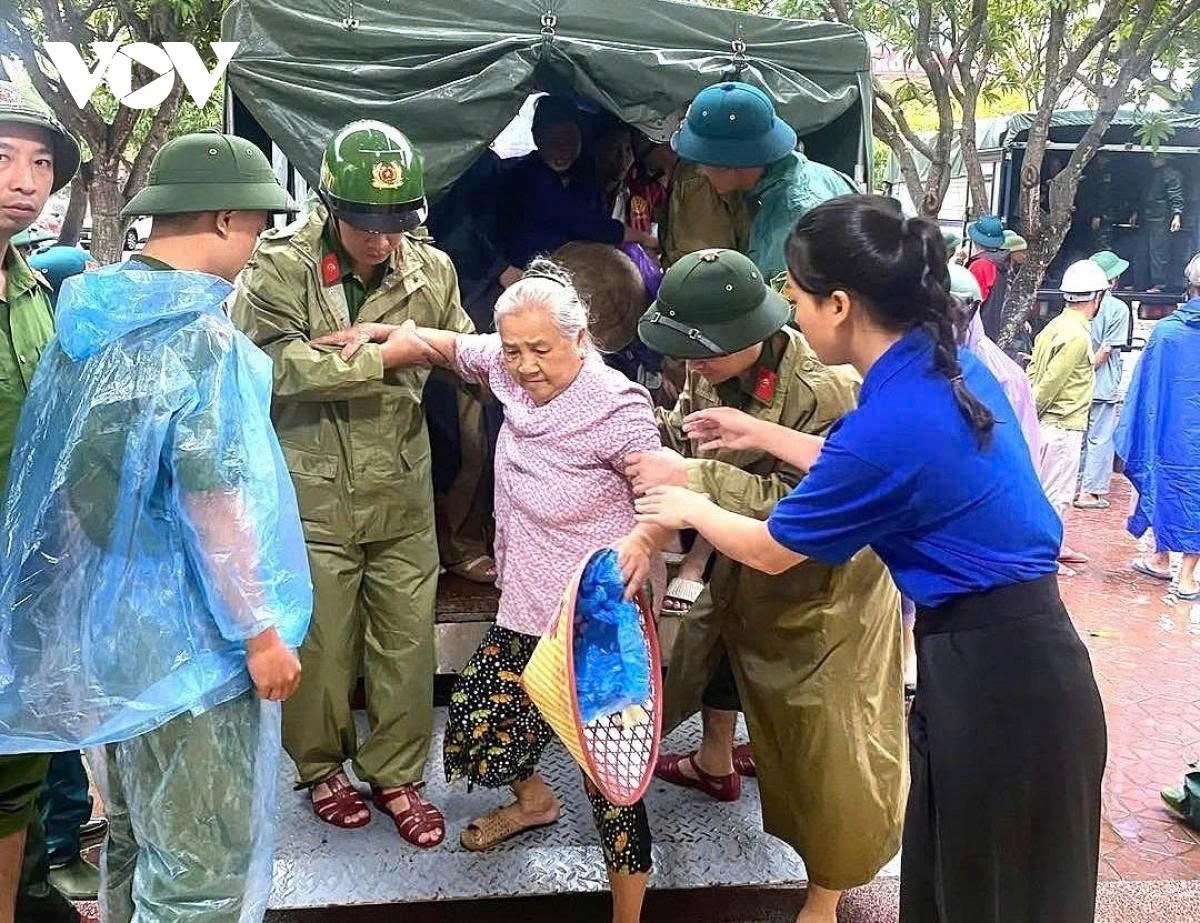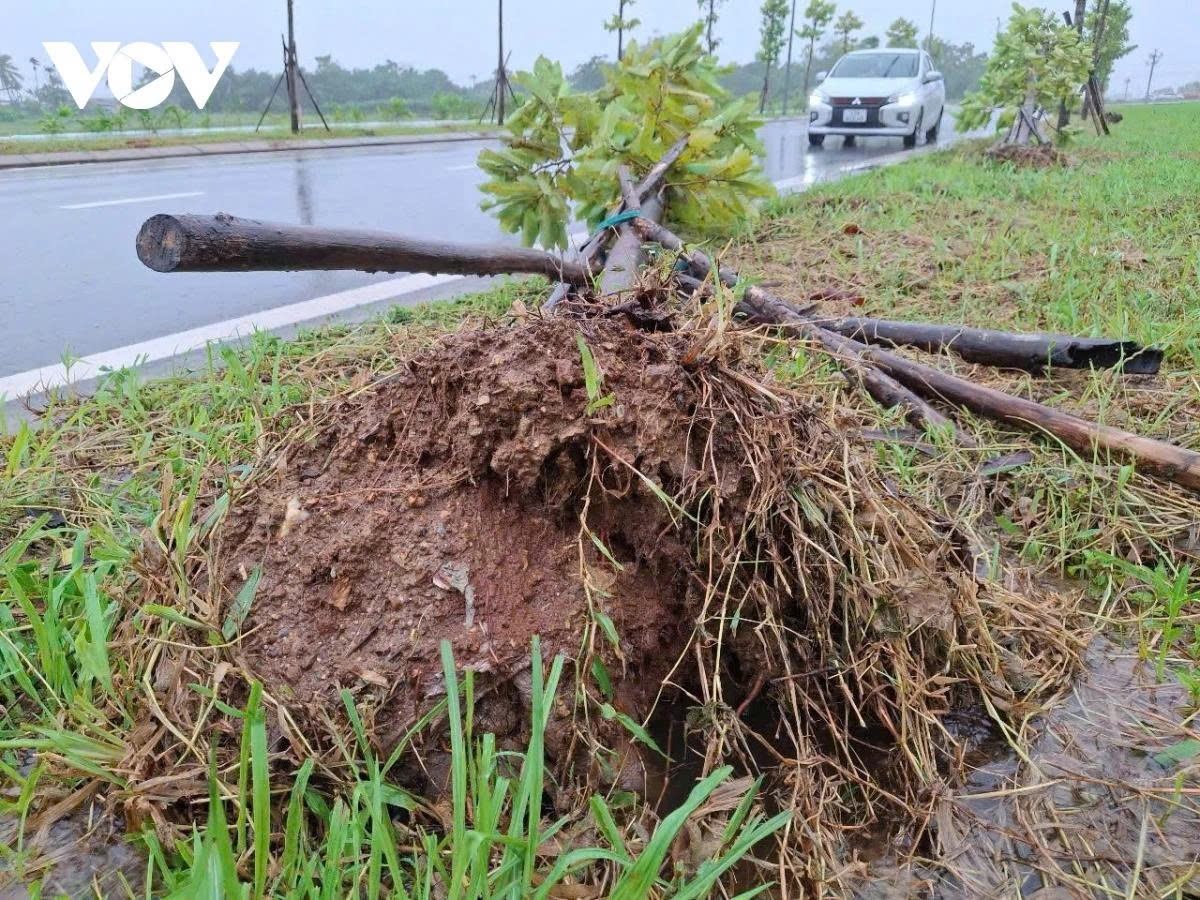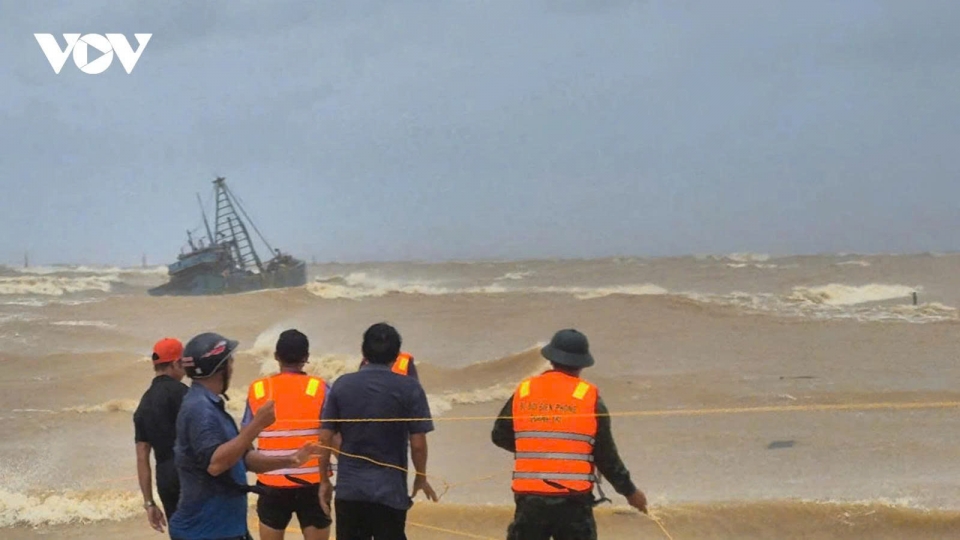Bualoi landfall: Mass evacuation underway, initial damage reported
VOV.VN - Authorities in several coastal localities of Vietnam have rushed to evacuate thousands of households from high-risk zones as Typhoon Bualoi is expected to make landfall late on September 28.

In Quang Tri province, 291 households with 1,402 people, including residents, workers at construction sites, and task forces, were relocated. On Con Co Island, around 200 residents, workers, and officers were moved into storm shelters to ensure safety before strong winds strike. The province also ordered over 8,500 fishing vessels to anchor safely.
In Ha Tinh province, thousands of households in coastal and vulnerable areas were evacuated to schools and community houses. In Thien Cam commune, about 800 households with nearly 1,750 residents had to be moved before 3 p.m. the same day.
In Nghe An province, authorities in Cua Lo town evacuated 151 households with more than 350 people from low-lying areas. In Thanh Vinh ward, over 2,000 residents living in deteriorated housing blocks were also relocated to safe zones.
Meanwhile, Hue City carried out an urgent evacuation of 328 households with 740 people due to risks of flooding and landslides.
Some other localities such as Quang Nam also proactively moved dozens of households to reinforced structures to ensure safety as the storm approached.
According to the Forward Command Committee for Storm Response, localities are continuing to review and relocate residents from danger areas, while deploying rescue forces and equipment to be on full alert as Typhoon Bualoi nears landfall.

Although Bualoi has not yet made landfall, heavy rain and strong winds battered central provinces on September 28, causing flooding and early damage in several areas.
According to the National Centre for Hydro-Meteorological Forecasting, Bualoi’s circulation is affecting Quang Tri to Da Nang provinces, and expanding to Nghe An, Ha Tinh, and Thanh Hoa provinces, with winds near its eye reaching 118–133 km/h.
Along the coast from Thanh Hoa to Quang Ngai provinces, winds blew at 75-86 km/h, with waves rising 5–7 meters, and up to 10 meters near the eye. Seawater levels rose by 1–1.5 meters, combined with high tides, increasing the risk of coastal inundation.
Preliminary reports show torrential rain was recorded in many areas. Ta Rut (Quang Tri) received over 270 mm of rain, Huong Nguyen (Thua Thien Hue) nearly 500 mm, and Que Phuoc (Da Nang) more than 200 mm. From now until September 30, central provinces are forecast to see 100–300 mm of rainfall, with some areas exceeding 450 mm, posing a high risk of flashfloods and landslides.
Initial damage was also reported in several localities. 75 houses in Quang Dien commune of Thua Thien Hue lost roofs in a pre-storm squall. In Da Nang city, many uprooted trees crushed cars, while two residents are missing after being swept away by floodwaters. In Nghe An, nearly 200 residents along the Lam River were urgently evacuated due to rising water levels.
Local authorities have deployed border guards, police, and military units to support evacuations and reinforce homes, while fishing vessels have been ordered to stay ashore. Emergency response measures are at the highest level as typhoon Bualoi is expected to make landfall late on September 28.

At an online meeting of the Forward Command Committee with localities in Nghe An, Deputy Prime Minister Tran Hong Ha emphasised the urgent requirements for responding to typhoon Bualoi.
According to the Deputy Prime Minister, Bualoi was moving along the coast, with its eye heading toward Ha Tinh and Nghe An provinces, packing strong winds of more than 130km/h, and potentially causing severe damage upon its landfall in the evening.
He ordered localities to immediately evacuate residents to safe areas without delay. He stressed that evacuation should be carried out flexibly based on actual conditions, not rigidly restricted to within 200 meters from the shoreline, as the storm’s impact zone is very wide.
The Deputy Prime Minister requested localities to strictly implement the “four on-the-spot” principle (which involves having available local forces, supplies, equipment, and logistics), clearly identify priority areas for response, ensure the supply of essential electricity, water, and food, and assign specific forces and equipment to proactively carry out rescue operations.





